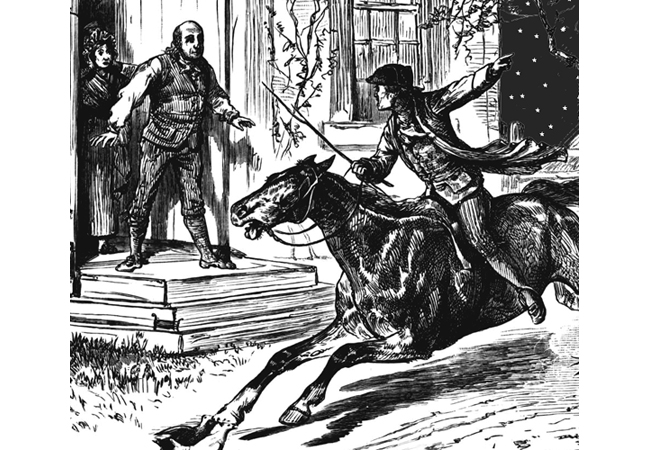


 |
 |
|
 |
||
 |
 (Paul Revere’s -1775- midnight ride to wake the people) |
|
Self Reliance |
||
 |
“Those who can make you believe absurdities, can make you commit atrocities.” ---Voltaire. You see them in every NAZI movie – the enthusiastic citizen going out of their way to inform on their neighbors. They’re in every town and city and they look just like you because they are made up of you. Just trying to be helpful with mostly just useful information or so it would seem. Much of this chapter also may seem unimportant but knowing stuff is very important as is context. So is of course the history of all of this tyranny. We won’t delve too deep, but I tell a story in my last book about my dealings with an attorney and here’s a synopsis. I’ve dealt with a lot of attorneys for one reason or another mostly having to do with minor matters. When I was involved with music it was mostly for contractual advice. And since then I began writing most of them myself when I started my own company. Anyway I collected antiques and got arrested several years later for possession of a stolen priceless artifact related to the early American patriot Paul Revere. It was a wooden “Surveyor’s Compass” circa 1770 marked Plymouth, New England. Because of its value I was charged with the felony of “first degree larceny.” It was missing from the Yale University Art Gallery last seen inventoried in 1963 but it was in fact never reported stolen. Of course my lawyer like any other out to make his job easier told me to return it to Yale and they would drop all the charges. First I reminded him in a very diplomatically and polite way that he worked for me. I then told him that there is a police witness statement on file saying it was found by him and given to me as a gift and that the artifact was in fact never reported stolen. I knew all of this because it was thoroughly investigated and I read the arrest warrant. This meant that the statute of limitations of five years for stolen property expired in 1968. Due to their lack of “due diligence” it was no longer Yale’s property because it was legally mine and I was too angry about being arrested to be nice.
He then told me that artifacts were exempt from the statute to which I then mentioned that the law at that time only applied to items stolen in World War Two by the NAZIs. In the end I would not relent and threatened to sue for false arrest unless Yale dropped the charges and paid me for the object and my expenses. Yale agreed and we settled out of court for an undisclosed amount of money. As part of the deal I signed an agreement that by accepting the money and returning the artifact, it would end there. Now what if I had no knowledge of history or law and went into court completely uninformed? I didn’t know anything about the laws on artifacts or art, or the statutes of limitations. Or the legal responsibilities of the original owner of such objects concerning “due diligence” but I studied up on it all really quickly. The moral of this story is that: Reading is fundamental so don’t approach anything without background knowledge or your own responsibility to “due diligence!” Your own responsibility to knowledge is for your own protection… ---Written by the author Robert Torres (2024) |
|
PAGES ALL ---- |
||||||
About-Site |
COS Series |
Legal |
Disclaimer |
Submissions |
 |
 |
 |
 |
 |
 |
|